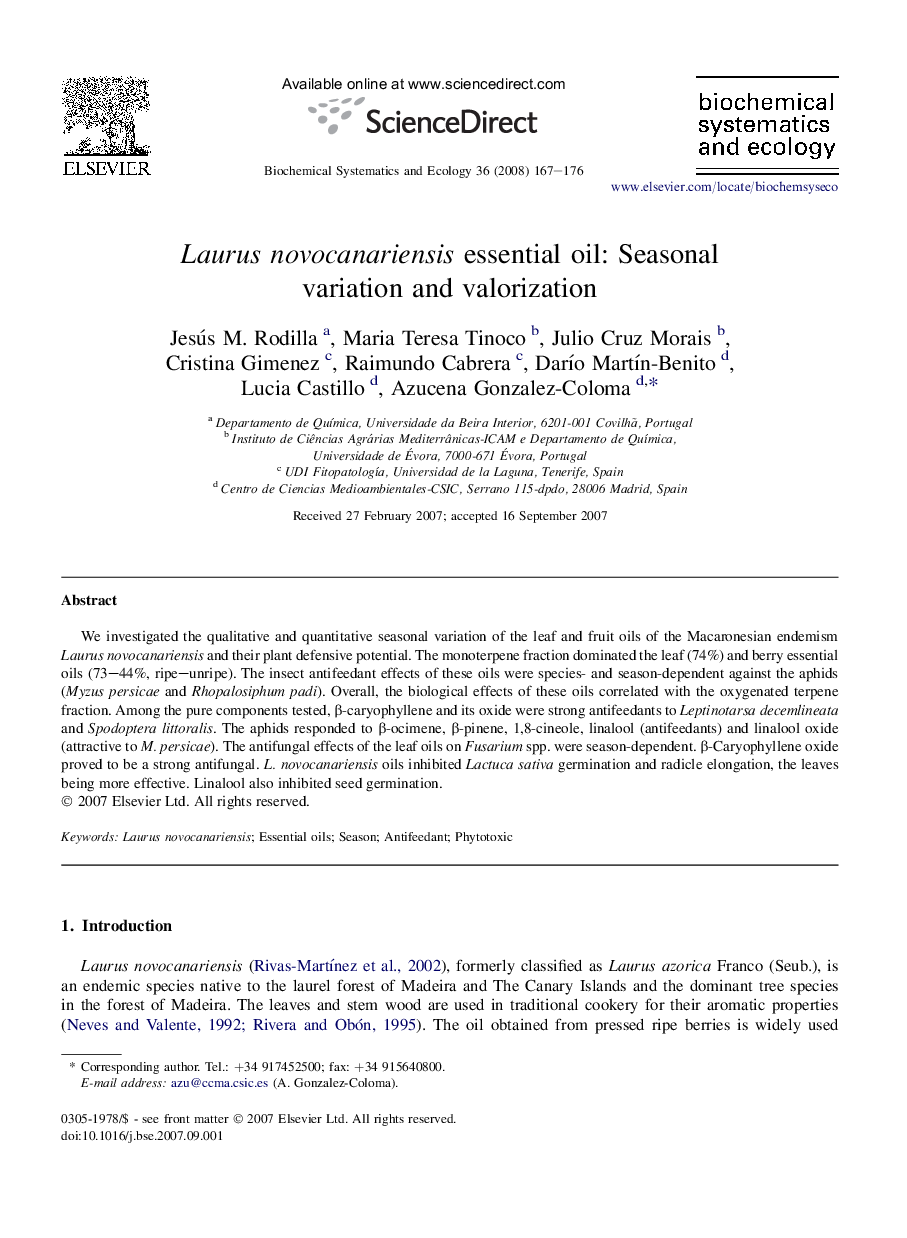| Article ID | Journal | Published Year | Pages | File Type |
|---|---|---|---|---|
| 1354467 | Biochemical Systematics and Ecology | 2008 | 10 Pages |
We investigated the qualitative and quantitative seasonal variation of the leaf and fruit oils of the Macaronesian endemism Laurus novocanariensis and their plant defensive potential. The monoterpene fraction dominated the leaf (74%) and berry essential oils (73–44%, ripe–unripe). The insect antifeedant effects of these oils were species- and season-dependent against the aphids (Myzus persicae and Rhopalosiphum padi). Overall, the biological effects of these oils correlated with the oxygenated terpene fraction. Among the pure components tested, β-caryophyllene and its oxide were strong antifeedants to Leptinotarsa decemlineata and Spodoptera littoralis. The aphids responded to β-ocimene, β-pinene, 1,8-cineole, linalool (antifeedants) and linalool oxide (attractive to M. persicae). The antifungal effects of the leaf oils on Fusarium spp. were season-dependent. β-Caryophyllene oxide proved to be a strong antifungal. L. novocanariensis oils inhibited Lactuca sativa germination and radicle elongation, the leaves being more effective. Linalool also inhibited seed germination.
